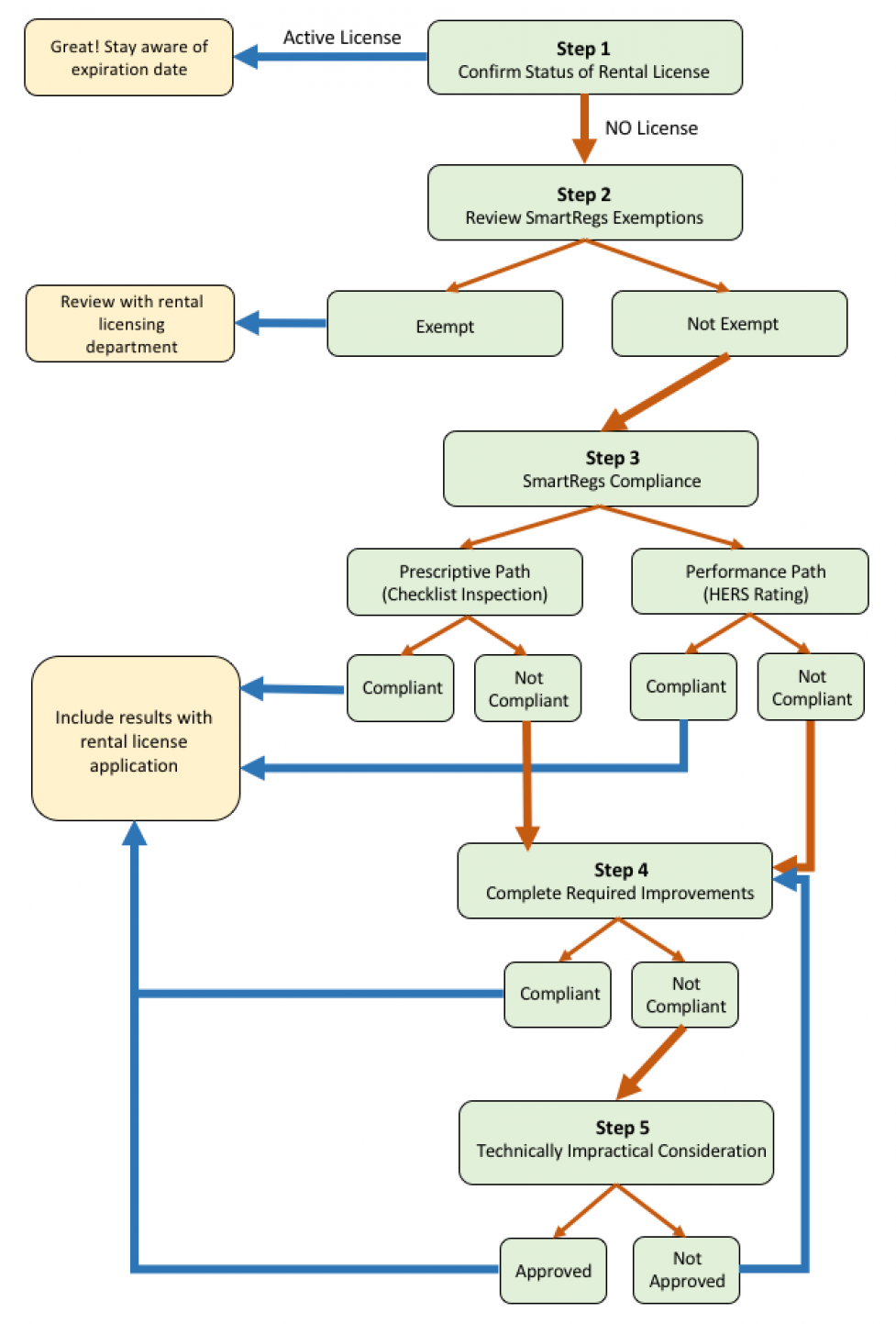You can confirm whether a rental license is currently active for a specific property by inquiring with the rental housing licensing office. Submit a message including the address(es) for which you would like to confirm whether or not a rental license is active.
- Note: If you are purchasing a property that already has a rental license please be aware that rental licenses do NOT transfer from one owner to another. Once property ownership has been transferred to you, it is required that a new license be issued before you can use the property as a rental. However, SmartRegs compliance DOES transfer when ownership changes.
